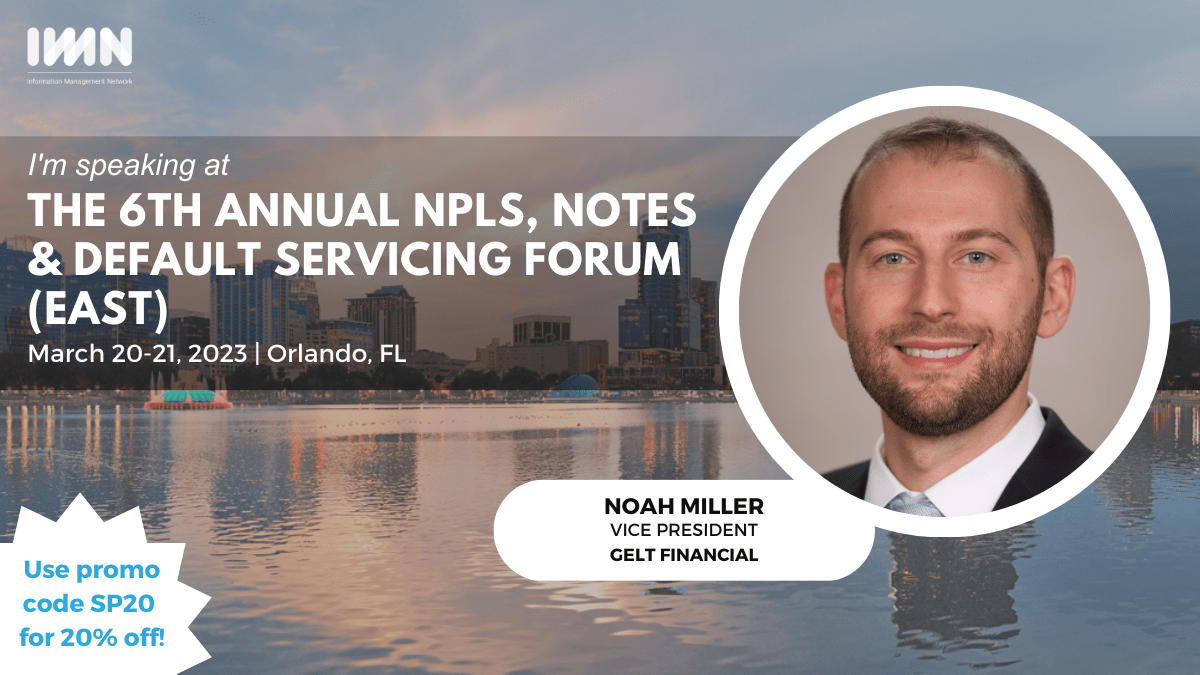Markets and the needs of borrowers are always changing, in order for a mortgage broker to survive and serve the needs of borrowers, they need to pivot. Foreclosure bailout loans and rescue capital are excellent products.
“Jack: Hey Marcy, I think we’re– yes, we are—
Marcy: We’re on.
Jack: So, we wanted to make this—
Marcy: First let’s just say “Happy New Year”.
Jack: Happy New Year.
Marcy: It’s our first video of 2023, so it’s good to see everyone, Happy New Year!
Jack: Happy New Year! So, it’s appropriate that it’s a new year, and things change. And the economy right now is in– I don’t know if we’re officially in a recession– it feels like we’re in a recession. The feds have really doubled the interest rates we’re about 5 or 6—
Marcy: Like last January 2022, to now, it’s drastic in the market; really is.
Jack: So things have changed in the economy, and you know at Gelt we’re pivoting. So, we want to make this as, I’m gonna highlight friendly advice or words of wisdom, or maybe a new path to mortgage brokers, you know.
Marcy: So, we’re trying; we want to talk about what will help mortgage brokers in this type of arena, really.
Jack: Environment, that’s correct. You know, a lot of– you know, rates have, like I say, over doubled.
Marcy: Yeah, over doubled, it’s crazy.
Jack: A lot of the people who are lending are not lending now, but there’s still a lot of activity and look in every market. So, we were very nice about that because Marcy said we got some criticism that we came off a little bit abrasive to mortgage brokers and—
Marcy: a little like abrupt, but then realizing—
Jack: We don’t mean to be abrupt.
Marcy: Yeah, we are there need to help you.
Jack: We don’t mean really to be abrupt. All of what we said before was a lot of sugar-coating. The reality is that brokers are struggling to do business, rate and term REFIS. A lot of borrowers are not qualified; they’re having debt service issues. A lot of lenders are not lending, so there’s a lot of stuff that you were doing 6 to 9 months ago that you can’t do today; it’s almost impossible.
Marcy: So, we’re going to problem-solve.
Jack: Well, we pivot at Gelt all the time, you know. We’re a 34-year-old company, but every 2 to 3 years, we have to change direction. So, we’re in an economy now that we have to come up with products for. So, let’s talk about what brokers can make money with, okay?
Marcy: Absolutely.
Jack: So, a big thing that works, we’re experiencing at Gelt–
Marcy: ourselves, yeah.
Jack: And every lender’s experiencing it– borrowers are struggling to make payments, okay, and some of them are going into foreclosure. So, a foreclosure bailout is a good product now. We do them at Gelt, other lenders would do them, and if I was a broker, I would be focusing on foreclosure bailout products and pre-foreclosure bailouts. A lot of tenants– you know, the economy has a chain reaction, so it starts at the tenant on investment properties.
Marcy: They don’t make their payment, then the landlord can’t make their mortgage payment, and this is how it continues.
Jack: Tenants are struggling. So, that’s what’s happening. So, if I was a mortgage broker, I would be focusing on foreclosure bailouts. We do foreclosure bailouts all the time here, and they’re really collateral. It’s no different than any other loan. It’s a collateral-based loan. Some of them you can’t get in. We just approved a deal the other day; it was a foreclosure bailout, and the tenant wasn’t paying rent, so you can’t even get in to do an inspection on the property. But that’s what’s happening. There are a lot of tenants, believe it or not, who are still in the property, not paying rent from COVID, and landlords can’t get them out. But we’ll finance those properties if the loan-to-values are lower. So, this is a foreclosure bailout, a fantastic product for a mortgage broker, and it’s a fantastic product for a borrower. Again, it’s going to be priced more than a bank product, but it beats losing the property and—
Marcy: So, that saves you, and we can save the borrowers. And the brokers, we can tell you all the time; market yourselves as foreclosure bailout specialists, you know, whatever it may be, and then you can bring it to us, and we can help you with that.
Jack: And remember, when you do, a borrower has a foreclosure bailout, let’s say they were paying 5%, 6%, 7% at banks, and let’s say the foreclosure bailout’s 12% or 13%, whatever it is, it’s only for a short term. It’s a Band-Aid loan. So, they’re going to take it for six months, a year, a year and a half, two years. So, it’s not a forever deal.
Marcy: Right, and then they can straighten themselves out, and then they can go get conventional financing.
Jack: Right, so foreclosure bailouts is one. A good way, foreclosures are public information, so if you’re a mortgage broker, you could online, go to your courthouse; when I say ‘only,’ you know, go to your courthouse you can sit in your bedroom and do it as long as you have a laptop.
Marcy: You have the option; you could see what’s going on.
Jack: You could see who’s in foreclosure, who has a Lis Pendens filed – who has… my mind just went. You know what I’m thinking about? We’re talking about it – my fingers have been killing me lately; I’m getting arthritis. It’s crazy. This is… So, anyway, you can go online; most courthouses, most counties have foreclosures publicized online, Lis Pendens lawsuits online. So, you could query through these, and there are sites that do them. You could pay a very small monthly fee. We use some of them.
Marcy: And reach out.
Jack: And reach out to the people. You know what else I found?
Marcy: What?
Jack: Besides the fact that I’m in pain, I need Advil.
Marcy: Just forget about it.
Jack: Yeah, forget about it. I’m going to stick with this. Is that… A lot of properties go to foreclosure, and the owners wind up losing them for a small amount of money. So, one of the things we do is what we call rescue capital. Rescue capital– I don’t want to get too technical.
Marcy: Well, but let’s define what rescue capital is.
Jack: Someone is in trouble.
Marcy: Yeah, and then they need money to get them out of their situation. So, we’re rescuing them.
Jack: Give you a real-life example. I’m going to change some of the locations because I don’t want to– it’s sensitive. The property was worth 4 million bucks in a normal market, okay? This market’s not normal, who knows what the value is. So, let’s say it’s worth 3 million dollars; not exactly sure, just giving you some idea. The debt on it is 2 million dollars. They’re $300,000 behind in their mortgage payments. They’re about to lose the property– okay, that’s a fact. Some borrowers have their heads in the sand, but they’re about to lose the property.
Marcy: Cause they think things are just going to go away.
Jack: Problems don’t go away.
Marcy: But they don’t.
Jack: So, they’re behind $300,000. Remember, they owe 2 million, and let’s say the property’s worth 3%. So, these numbers I’m giving you really hold true to a lot of cases. I find a lot of foreclosures happen, and a lot of borrowers lose properties for give or take 5% to 15%, 10% of the value. So, you could have someone who has a $500,000 property, and if they’re $50,000 dollars behind; $50,000 dollars is a lot of money and $300,000 dollars is a lot of money, but in percentages to the property, it’s not a lot of money. So, in the case I gave you before, we injected the $300,000. We provided the $300,000. Now, it’s not so simple. I’m going to gloss over some of the details because I don’t want to– Marcy says I’ll confuse you.
Marcy: No, because it’s too much.
Jack: It’s too much. But it can be done as debt, it could be done as equity, and really, we have to get us onboard as the capital provider, the owner of the property, and the current lenders and the lien holders onboard. But usually, you could work out what I call a tri-party agreement. We provide the capital necessary to save a project. The owner– it’s going to cost the owner money; he may– it’s self-understood, it’s not going to be cheap.
Marcy: But he’s not going to lose the property.
Jack: That’s exactly right.
Marcy: That’s the key here.
Jack: Here, maybe it’s debt, maybe it’s equity.
Marcy: It doesn’t matter.
Jack: But he’s not going to lose it, and I found tons and tons of properties are lost for, give or take, 10% of the value.
Marcy: And like even borrowers that we’ve come across over all these years, they think things are just going to disappear like that their problems aren’t. But you know, if you communicate and you reach out, that’s why we’re out here, and we’re telling you; brokers, borrowers, we could help solve your problems.
Jack: Yes. So, a mortgage broker, this is what we’re making this, to mortgage brokers. You should be pushing— I don’t want to say ‘you should be pushing’ because that comes out as obnoxious, I don’t mean that.
Marcy: No, but you can advertise.
Jack: If I were you, okay, and I would be pushing rescue capital now, foreclosure bailouts, things of that nature because again—
Marcy: That’s what’s active right now.
Jack: That’s what’s active, and it may be a little premature because, you know, the rate hikes are coming into effect, but the Fed’s going to keep raising rates, and in the next three to six months, this is even going to be more active. There’s going to be more borrowers.
Marcy: So, in a sense, we want you to be ahead of the game. We’re giving you this information so you can get– be ahead of everyone else and start advertising for foreclosure bailouts.
Jack: And remember, for every problem, there’s a solution. Again, and part of it is you have to know how the pieces go. To be candid with you, a big part of this is you have to be a little bit of a psychiatrist or psychologist or therapist because a lot of borrowers, it’s more emotional.
Marcy: It’s emotional.
Jack: It’s ego. They have their head in the sand. I get it; no one wants to hear bad news.
Marcy: No. But that’s what we’re here, to solve your problem.
Jack: But when you solve the problem, they’re going to be so thankful to you.
Marcy: And the bottom line is we don’t want anyone to lose their property, so if there’s a solution, we’re going to try to find it.
Jack: That’s correct. So again, I think the message is don’t be afraid to pivot. Pivoting is not a bad word. Change direction with the economy. There’s tons of information on foreclosure bailouts; we’ve made a whole thing on rescue capital, foreclosure bailouts. We’ve made a bunch of them.
Marcy: Over the years, of course. It’s just very– it’s like in the head of the game now, though.
Jack: Yeah, I would invite if the broker came to see me today, I would tell him to focus on rescue capital, foreclosure, and on general possession and exit financing on Chapter 11 and Chapter 5 bankruptcies. I would become a bankruptcy expert. No, I would– it’s a bit, it’s not a big deal today, but I’m guessing in three months, six months, as the economy goes full cycle, it will be. So, focus on all these issues and when they’ll be able to pay you, you’re going to be able to earn money on these. No one’s asking you to do it for nothing– everyone gets paid. I think it’ll be a great revenue source for borrowers, and you can get the deals and the lenders are out there.
Marcy: Absolutely.
Jack: Did we leave anything out?
Marcy: Not on this topic. I think we’re good.
Jack: Remember, check us out. Oh, I always – I always would forget to tell people in the beginning, like the YouTube channel. I’m saying it at the end if anyone’s listening. Like the YouTube channel, check us out at gellfinancial.com. Leave your comments, we answer comments all the time. And if you need us, call us at 561-221-0900. Most importantly, remember, for every problem, there’s an opportunity, and the truth is, the biggest money is made when you solve a problem. If you’re not solving a problem, if it’s just a routine transaction, it’ll be a single. But when you’re solving a problem, it could be a double, a triple, a home run. Plus, you’re helping someone, and there’s tremendous satisfaction in that. That’s it.
Marcy: Have a great day.
Jack: Have a good day.”
Category: Mortgage Brokers
























